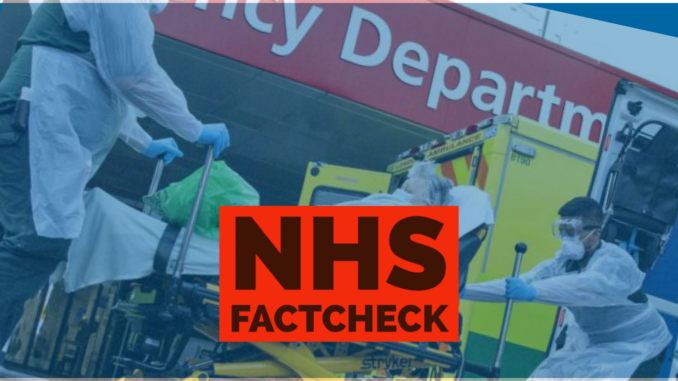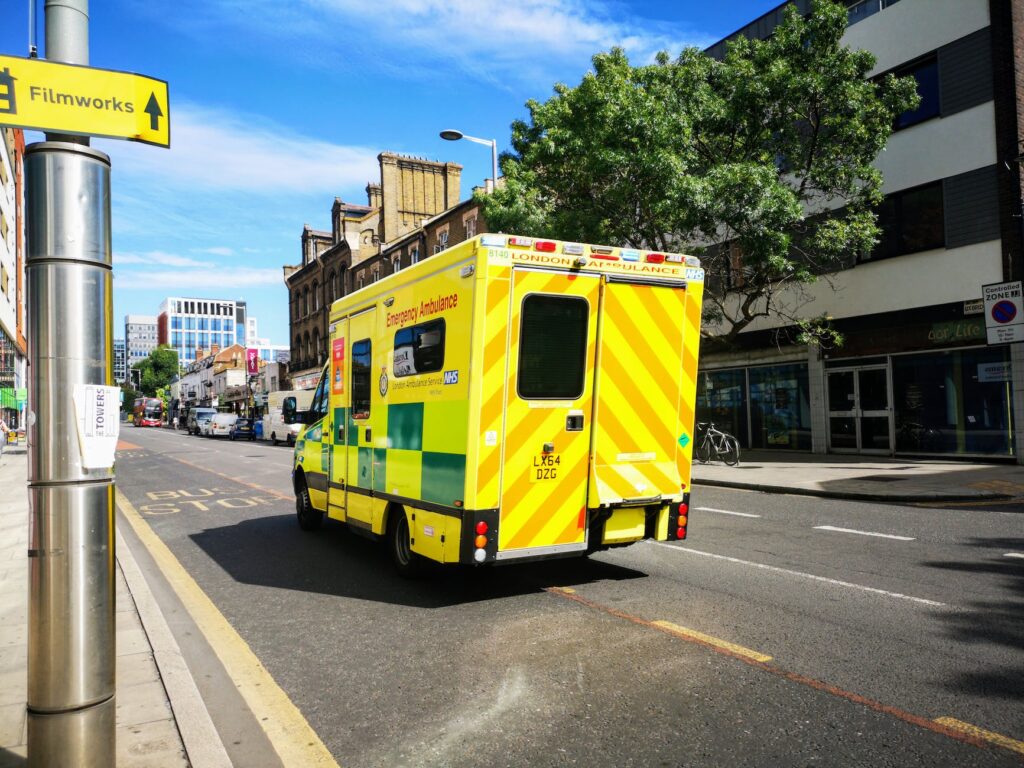
Factcheck 1
“The NHS has been given lots of extra funding during the pandemic – it should now be able to live within its means.”
There are many misconceptions about what’s wrong with our NHS. Each week Keep Our NHS Public will release an ‘NHS fact check’ article to dispel myths, counteract misinformation and win the arguments for a fully funded fully public NHS.
Factcheck 1 Does the NHS already have enough money?
Factcheck 2 Is the NHS a funding ‘black hole’?
Factcheck 3 Is there ‘too much waste’ in the NHS?
Factcheck 4 There isn’t enough money to fully fund the NHS
Latest in the Factcheck series from Sally Ruane
Sally Ruane is a member of Keep Our NHS Public Executive. She is a member of the Institute for Applied Health Research at De Montfort University, Leicester. She has published in books, academic journals and magazines in the UK and Spain.
It would be tempting to think that many of the NHS’ problems have now been addressed through the extra spending on health during the pandemic. Unfortunately, this is not the case because:
Much of the money spent during the pandemic was needed for the additional costs of the dealing with Covid-19, for example personal protective equipment (PPE). Spending on PPE did not allow extra health care to be provided, it simply allowed health care to be provided more safely – more safely for both patients and staff. The same goes for spending on Covid-19 vaccinations: this extra spending is needed because the NHS is being expected to provide these vaccinations.
Much of the additional expenditure on health care during the pandemic went not to our NHS hospitals and GP surgeries but to private companies. For example, £15bn was spent on contracts with private companies to supply personal protective equipment. We now know that much of this expenditure could have been avoided through better pandemic planning and better procurement . A further example of wasteful health spending on the private sector during the pandemic concerns the £2bn and £4bn of public money spent on a 2020-21 contract for private sector beds, much of which was wasted because a lot of this capacity was not used . Another aspect of government spending on health which benefitted the private sector much more than the NHS was the approximately £20bn spent on Test and Trace as this was largely operated and run by private companies.

The effect of austerity
The ‘decade of austerity’, when annual increases in NHS funding fell woefully behind the cost of providing care for those who needed it, has resulted in untold damage to the health service and its capacity to cope with patient need today. It is not possible suddenly to reverse these problems. The austerity funding policy destabilised the NHS, partly through closing necessary services and reducing the quality of some services (e.g. switching to telephone care or online care for people with mental illness when face to face care would be better). It also destabilised the NHS through exhausting staff and undermining their morale, leading to high staff losses and contributing to the current workforce crisis. This failure to care for staff is one of the reasons the NHS is having difficulty today in dealing with the record high waiting lists which are themselves the result of the combined effects of austerity and the pandemic.
Outlined funding is not enough
In 2021, the government pledged significant additional funds for the NHS , including through the new Health and Social Care Levy. However, even at the time, those working in the health service estimated that the NHS needed more, an additional £10bn in 2022-23 to cover ongoing COVID-19 costs, address the care backlog and make appropriate allowance for lost efficiency savings . The gap between what is needed and what is available is now even greater because the high rate of inflation has eroded the value of the funding. The government continues to channel money to the private sector and there are other signs that the government is not recognising the challenges that exist. It announced in March 2022 that there would be no extra funding to resolve the workforce crisis and the additional ring-fenced funding to support care for people discharged from hospital which was introduced during the pandemic has been ended . This has resulted in thousands of people being stuck in hospital beds because care cannot be provided for them once they leave hospital.
Both the NHS and social care were severely damaged through the imposition of a decade of funding. The government must address and repair this damage so that quality services can be restored and long waiting times ended.
Sally Ruane
Executive Committee – Keep Our NHS Public

Leave a Reply